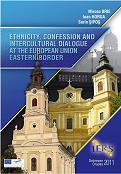Appellation of Origin vs. Geographical Indications. Terminological Debates during the Lisbon Treaty 1958
Appellation of Origin vs. Geographical Indications. Terminological Debates during the Lisbon Treaty 1958
Keywords: Appellations of Origin; Geographical Indications; International Treaties; Diplomatic Conferences
The paper studies the debates that took place during the Lisbon Conference of 1958 regarding the international protection and registration of appellation of origin. In particular, the bases of the research are the discussions that took place during the Lisbon Conference regarding the notion of appellation of origin, and that of geographical indication. All the opinions and positions took by different states regarding this particular problem are collected in the book entitled “Actés de la Conférence de Lisbonne” published by the World Intellectual Property Organization (WIPO). The debate is highly important nowadays because of the reforms intended to be made in the geographical indications protection system. Also the positions expressed during the Conference are relevant for the future of the international act adopted: the “Lisbon Agreement”.
More...
